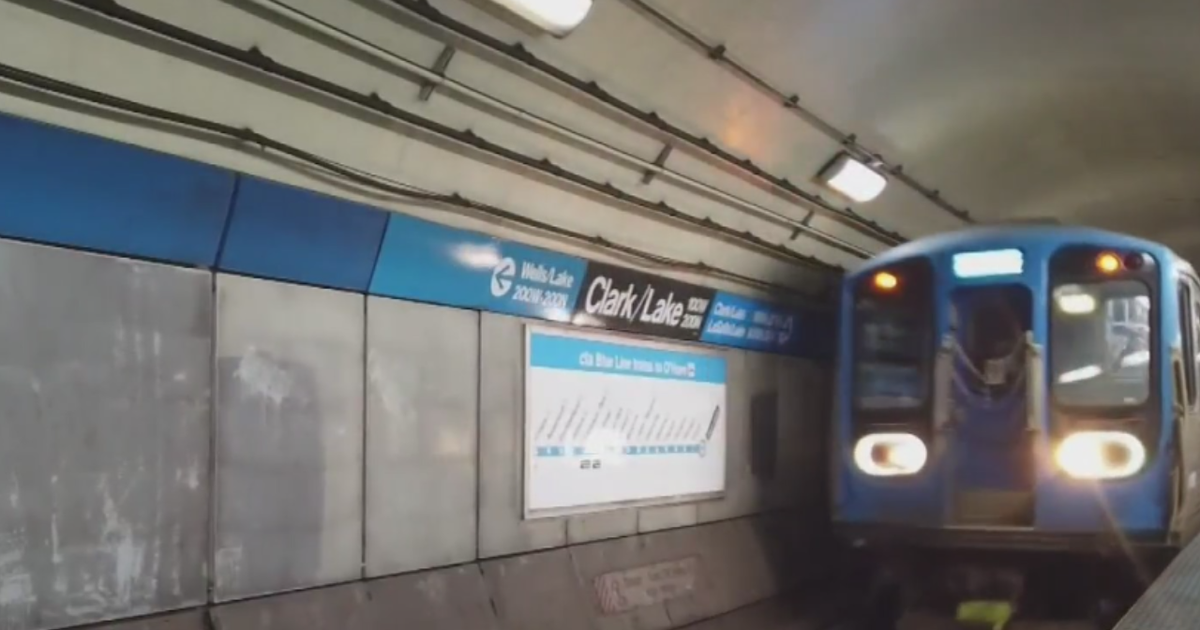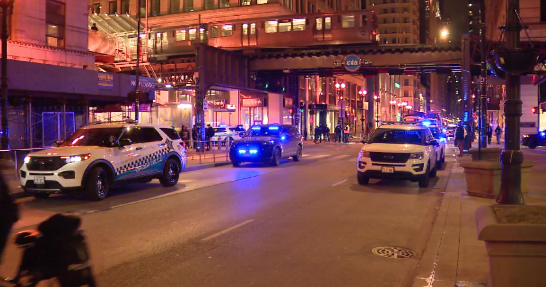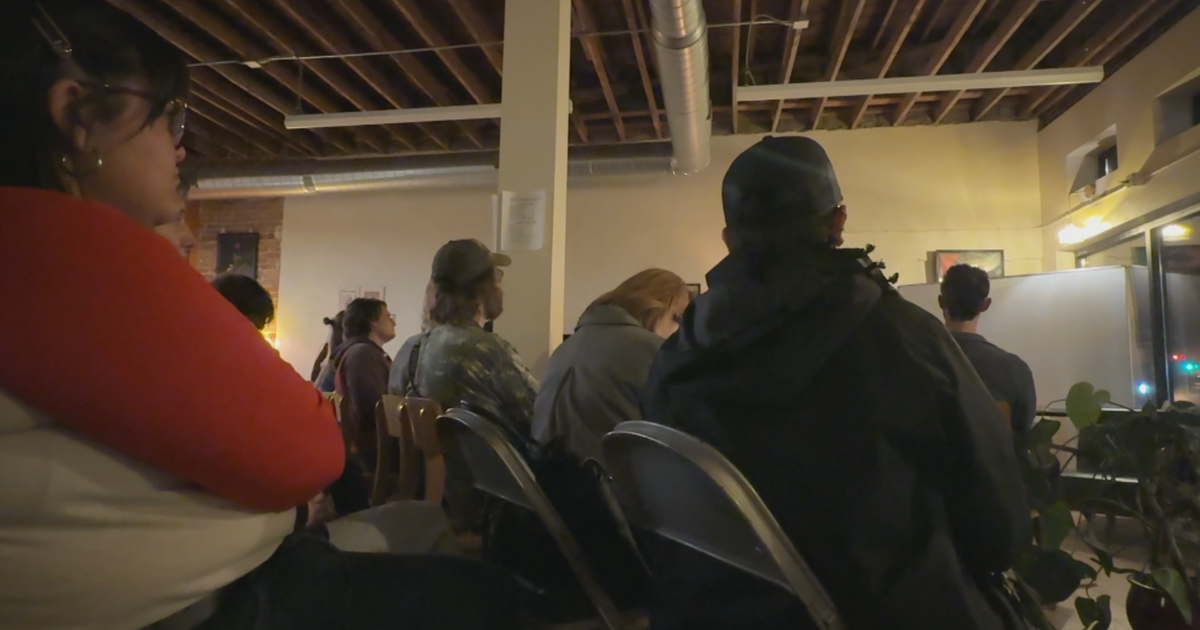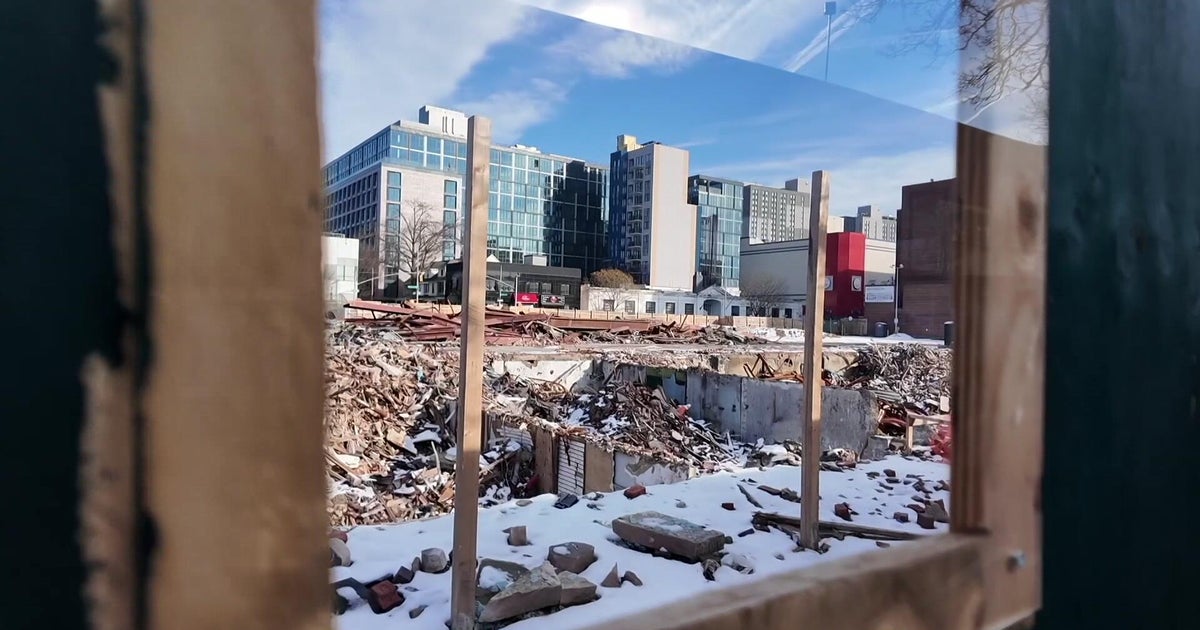Advocacy group's mission to help Chicago migrants starts in storage unit across from Greyhound stop
CHICAGO (CBS) -- As hundreds of asylum seekers continue sleeping on CTA buses at Chicago's official "landing zone" downtown, and buses continue bringing in migrants from Texas, questions remain about the city's long-term plan for the migrant crisis.
One group isn't waiting for a plan from the government. They're helping on their own, and it starts in a storage unit across the street from the Greyhound bus stop in downtown Chicago.
Among aisles and aisles of locked doors, something waits behind each of the steel gates inside; stacks of bottled water, bins of snacks, racks of clothing and shoes, and other donations for newly arrived migrants.
"I often refer to the Good Samaritan story, where one can just pass, and look at you, and not do anything about it, and that just bothered me to see people behave that way," said Johannes Favi, deputy director of Illinois Community for Displaced Immigrants, a non-profit social service agency helping care for newly arrived migrants in Chicago.
Favi dedicated his career to showing others the kindness he wished he'd received when he came to the United States from West Africa 11 years ago.
"Teach them how to ride a bus. You know, went across the road, not to break the law," he said.
He and his team have set up at a storage facility across from the Greyhound station in downtown Chicago, where they can count on the fact migrants will get dropped off every day.
They were seeing maybe 7 to 10 people show up periodically until August of 2022. Now it's not surprising to see 50 to 200 asylum seekers arrive in a single day.
"Migration has been happening for thousands of years, right? But it's only now that we all are very focused on the topic, because they're being used as political pawns," he said.
Favi said, when asylum seekers arrive, "there's a turning point for every single migrant to face a reality here that is very different from the El Dorado dream that they had before they came."
Favi identifies asylum seekers – in part – by their missing shoelaces and belts.
"People need laces and a belt, because when you cross the border, you get detained by CBP (U.S. Customs and Border Protection), those are items that they will not return to you so that you don't kill yourself," he said.
He and his organization replace those.
"They come here to make a life, but we trap them in our broken immigration system," Favi said.
It's a system where some asylum seekers spend their days inside a city bus waiting for a bed in a brick-and-mortar shelter; a system where some wait months, at best, for a work permit before they can support themselves. Favi and his team try to replace a bleak reality with an open door.
"Reminding them that there is somebody there to help them make it," he said.
As of Tuesday, approximately 14,600 migrants were staying in one of the 27 city-run shelters in Chicago, with another 550 awaiting placement - 255 of them at O'Hare International Airport, 279 of them at the city's official landing zone, and 16 at Chicago police district stations.
City officials said they were expecting at least one bus of migrants to arrive in the Chicago area on Tuesday.
The continued influx of migrants comes as officials in Texas have quietly tried to thwart efforts by an unofficial network of migrant advocates to bring organization and efficiency to bus arrivals in Chicago and other cities across the U.S., and have maximized chaos for Democratic-led cities where buses were sent.







